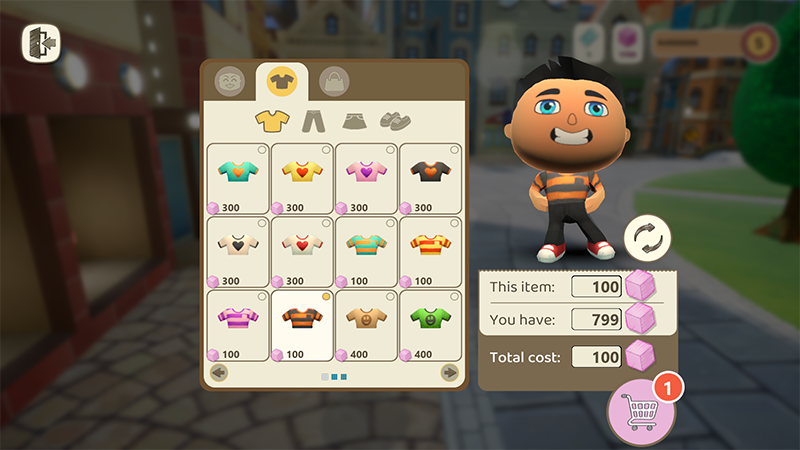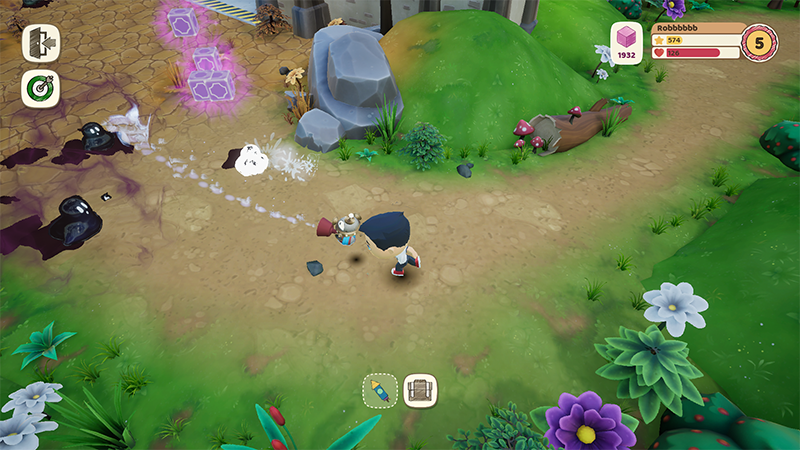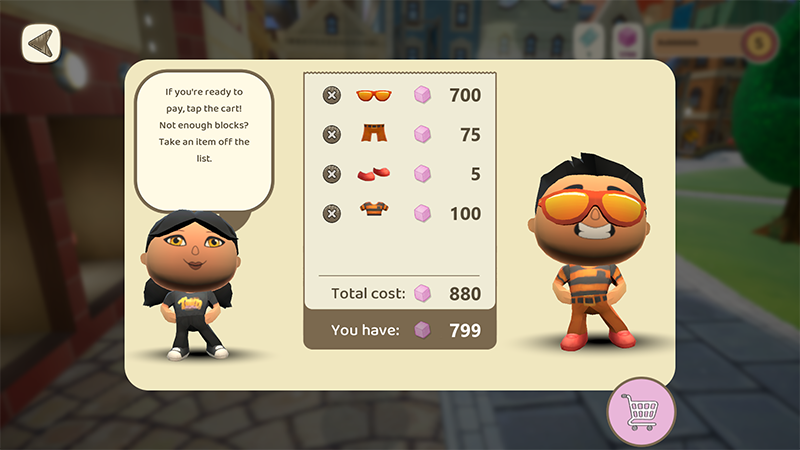Back to library
Maths in Town Squared: Blocks as in-game currency
Until fairly recently, children grew up seeing real money being used all around them. Going to the supermarket with the family, paying for house repairs, going to the ATM – there were many situations where a child could see money being earned and spent.
As the world becomes increasingly digitised, money is less visible. Many of us get paid online. We may pay bills online, or wave phones at the register instead of paying cash.
The invisibility of digital money can make it harder for children to understand the practicalities of earning, spending and saving. Town Squared addresses this by using an imaginary currency called Blocks as virtual money.
Blocks are earned through game effort and saved into a digital 'wallet'. Over time, players are presented with choices that explore financial literacy concepts, and are prompted to consider how to value their game effort, and the efforts of others in the town.
Initially the game introduces the key ideas of earning, spending and saving. Over time the game will offer opportunities to explore more complex financial concepts, including the risks and rewards of borrowing, lending, sharing, giving, and investing.
Earning blocks
Blocks can only ever be earned by some form of effort in Town Squared.
To get a ticket to the quest fields, the player must 'work' in the town, doing maths activities in different locations. This is the initial form of earning.
Once players arrive at the quest fields, they must clean the sprites or be overwhelmed by the pollution. When they are completely clean, sprites leave blocks to thank players for freeing them from pollution. This is the second form of earning and is the only way to obtain the block currency.


Spending and saving blocks
When children finish a quest and return to the town, they see the blocks they have earned as a number in the onscreen tally. They can now use these blocks around the town, initially by spending them at shops in the square.
Buying items in the shops involves active choice-making, as items in the shops have different prices. Children must decide between instantly buying something to wear, or saving their blocks over multiple quests so they can afford the more expensive items.
Children can try on items in the shop, but at each stage of buying they are subtly encouraged to compare the amount of blocks they have earned with the items they are trying. This reinforces the idea of value, as they know how long it takes to 'earn' blocks and how easy it is to spend them.
Players can still attempt to buy when they don't have enough blocks - they simply receive direct feedback showing them their mistake.

Future features
Over time, more uses for blocks will open up around the town, and new buildings will appear around the square. Players may be introduced to ongoing cost-of-life fees, such as paying for their hotel accommodation. This introduces the idea of expenses as a cost to their earnings.
Other ways to use their blocks will also become available. While these changes are still in development, they align to financial literacy concepts around how we use money, and thinking about what happens to money over longer periods of time.
Sharing and giving blocks
An important part of financial literacy is exploring ideas of shared responsibility and care for the wider community. Over time, players may experience this as a direct cost to their earnings - for example, being asked to contribute to the upkeep of the town - or as a choice they can make, such as choosing to give blocks to friends.
These elements of the game allow us to explore both the maths aspects of money (for example, working out how to divide an amount evenly across multiple players), and the social aspects, where choices need to be made by and for the community in the town.
Lending, borrowing and investing blocks
At a later stage of development, the Bank will open up to customers. This space introduces children to new ways of saving their blocks, and children can decide on different ways to save their earnings. Concepts such as fees, interest, and probability are explored here.
Over time, the bank and other businesses in the town may offer loans and investments. This presents older children with the opportunity to explore ideas of risk, and comparing data to make a prediction.
